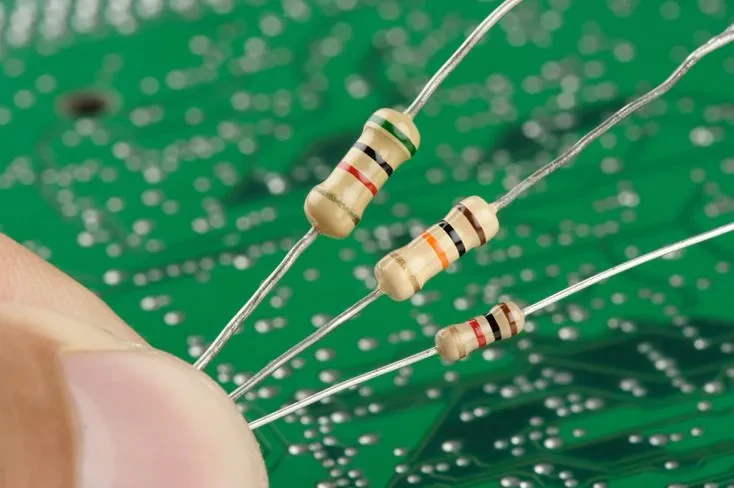Categories
- Through Hole Resistors(382,548)
- 1
- 2
- 3
- 4
- 5
- 6
- 250
What are Through Hole Resistors?

Through-hole resistors are passive electronic components used to add resistance to a circuit. They have a cylindrical or rectangular shape with two leads that are soldered through holes in a printed circuit board (PCB). These resistors come in various resistance values, power ratings, and tolerance levels to accommodate different circuit needs.
Applications of Through Hole Resistors
Voltage Divider Circuits: Through-hole resistors are commonly used in voltage divider circuits. By incorporating a series resistor, you can achieve an accurate voltage drop, essential for biasing transistors, establishing reference voltages, and controlling amplifier gain.
Current Limiting: These resistors are frequently employed to limit current in electronic circuits, ensuring devices like LEDs, transistors, and integrated circuits receive the correct current for safe operation within their rated specifications.
Filter Circuits: In both active and passive filter circuits, resistors play a key role in shaping frequency response by determining cutoff frequencies and attenuating undesired frequencies.
Signal Conditioning: Through-hole resistors are vital in signal conditioning circuits, aiding in impedance matching, level shifting, and signal attenuation, which ensures the input signal is suitable for further processing by other components.
Pulse Shaping: Resistors are utilized to shape pulse waveforms in applications such as pulse width modulation (PWM), where precise control of the duty cycle is required.
Oscillator Circuits: In an oscillator circuit, a resistor is typically paired with a capacitor to establish the frequency of oscillation.













